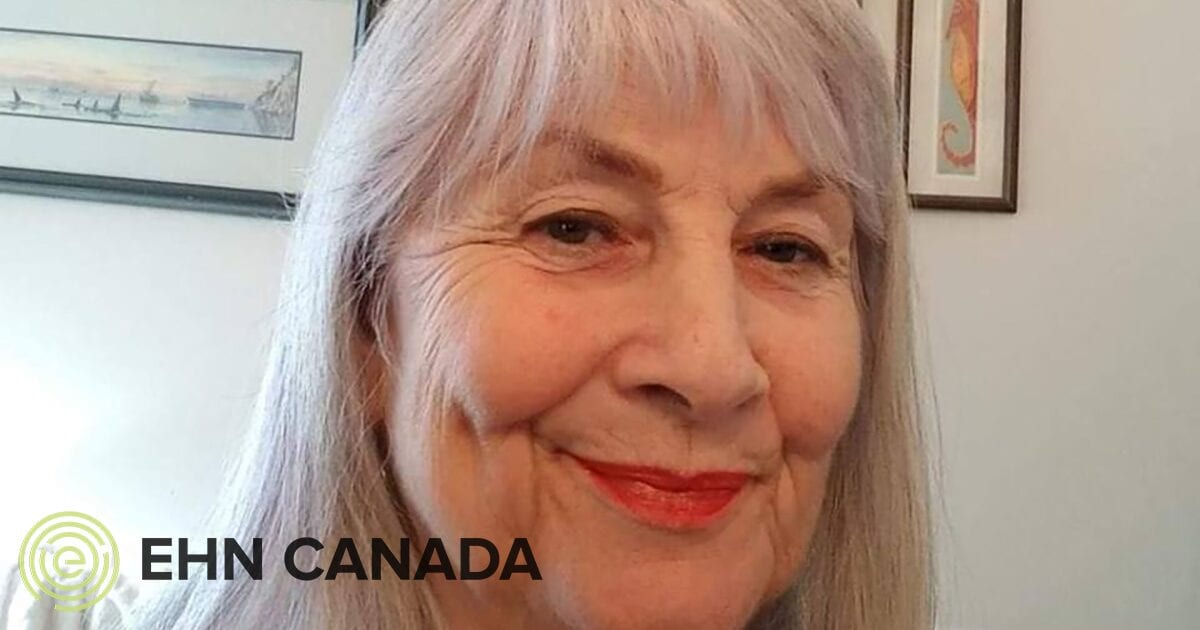Opinion by EHN Guest Writer
Written by Lorelie Rozzano, an internationally recognized author and advocate.
Once, a successful businesswoman, mom, and wife, Goldie was homeless and living a criminal lifestyle when she entered Edgewood on April 5, 2007. Born and raised in Nanaimo, Goldie says she became addicted from the age of five when she first sniffed gas in her barnyard. Goldie enjoyed the smell of gas and had no idea she was getting high. As a teenager, Goldie huffed nail polish, smoked marijuana, and drank alcohol. In her twenties, Goldie tried cocaine. She loved the way it made her feel and could drink twice as much when using it.
In her twenties, Goldie did what many young women do: she got married. But the marriage didn’t last, in part due to her heavy alcohol and cocaine use. When Goldie’s marriage ended, she says she pulled herself together and cleaned up her act. Then Goldie met another man, got married, and picked up her cocaine habit again. Only Goldie’s tolerance had increased, so she switched from snorting cocaine to smoking crack. Goldie and her husband used together, and things got ugly between them. Goldie knew she had a problem, so she quit smoking crack, and divorced her husband.
As Goldie’s cocaine usage decreased, her drinking increased. Goldie met her third husband, and her life continued to spiral downwards. Goldie’s husband was violent, and their marriage didn’t last long.
When Goldie’s third marriage dissolved, she became involved with another man who was also abusive. At the time Goldie was landscaping, taught classical piano, and was involved in theatre. When her latest relationship dissolved, Goldie’s drug and alcohol consumption continued to escalate. Goldie sold her house and put all her belongings in storage. Three days later, Goldie’s storage unit burned down. Goldie said “screw it.” That’s when she stopped caring about herself and everyone else.
Almost out of funds, Goldie bought a travel trailer with the little money she had left. Unfortunately, Goldie didn’t have the travel trailer for long. Sitting on a curb one day, Goldie wondered how she had gotten there. Once a person to whom people looked up; now no one wanted to talk to her.
Goldie’s family was worried. Goldie’s sister told her she was killing their mother, but Goldie was full of rage and self-pity and she didn’t listen. Goldie says she had no compassion for herself or anyone else.
In a desperate attempt to save Goldie’s life, her family planned an intervention. Goldie walked out of the intervention and didn’t see her children or family for a long time afterward. Even though Goldie left the intervention, she says the message stuck. Weighing 93 pounds, Goldie was sick, and out of options. Tired of living in her car or on the streets, she surrendered. Eleven months after the attempted intervention, Goldie entered drug rehab at Edgewood.
For the first time in a long while, Goldie felt hopeful. She was warm, had a bed in which to sleep, and her stomach was full. At 52 years old, Goldie began to shed her street persona. Goldie never realized how angry she was or how much hurt and trauma she carried within. Through the process of group therapy, assignments, counseling, and feedback, Goldie recognized her unhealthy thinking and behaviour patterns. With the help of her counsellor and peers, Goldie stopped reacting to her feelings and began talking about them instead. Every time Goldie got honest, her anxiety lessened, and she felt empowered.
In Edgewood’s safe, supportive environment, Goldie blossomed. Goldie reconnected with her mom and phoned her every night. One day Goldie’s mom asked, “why do you need me to acknowledge every little thing you do?” Goldie told her Mom, “because I feel like I’m four and I’m just learning to tie my shoes.” Goldie says it was a lightbulb moment for them both.
When Goldie completed treatment, she moved into a sober living house and stayed closely connected to Edgewood through her aftercare program and volunteer work. Goldie immersed herself in recovery. Her dream was to open a recovery house for women like herself. Goldie wanted to provide a safe place for people to heal, and share with them the life-saving lessons she learned at Edgewood.
Goldie was working as a support worker for people with brain injuries when her mother got sick. When her mom was hospitalized, Goldie cooked her dinner and spent every night at her mom’s bedside. Goldie is thankful that her mom got to see her sober and that they had time together before she passed.
The dream of providing a safe place for women never left Goldie. She tried renting houses, but when she told landlords her intentions—to help and house women recovering from addiction—the landlords backed away from her in horror. However, Goldie was determined, and she knew from her experience at Edgewood that miracles do happen. Goldie persisted, and at last, she got lucky. Goldie found a landlord who was willing to take a risk and rent to her for a three-month probationary period. Goldie was thrilled and soon had all four bedrooms full. She says that she and the women planted gardens and cleaned up the yard. She knew from her stay at Edgewood the importance of a structured environment and hard work.
Three months later, Goldie’s Place was born. The house was old and decrepit, but Goldie and her girls made it their home. Goldie acknowledges working with people in early recovery is challenging. But Goldie meets her girls wherever they are, not where she thinks they should be.
Goldie knows personally the devastation of losing everything you love to addiction. She says your mind tells you that you’re hopeless and that you’ll never achieve recovery. Goldie encourages the women in her house to take one tiny step towards themselves. It’s the first step that’s the hardest. It gets easier after that.
With Edgewood’s help, Goldie turned her life of tragedy into a triumph. Goldie sums up our interview, “if I want to keep my sobriety, I must give it away.” And give it away she does! Goldie devotes her life to helping women like herself recover from a state of hopelessness and embrace a brand new life in recovery.
We Can Help You
If you would like to learn more about the treatment programs provided by EHN Canada, enrol yourself in one of our programs, or refer someone else, please call us at one of our phone numbers. Our phone lines are open 24/7—so you can call us anytime.

